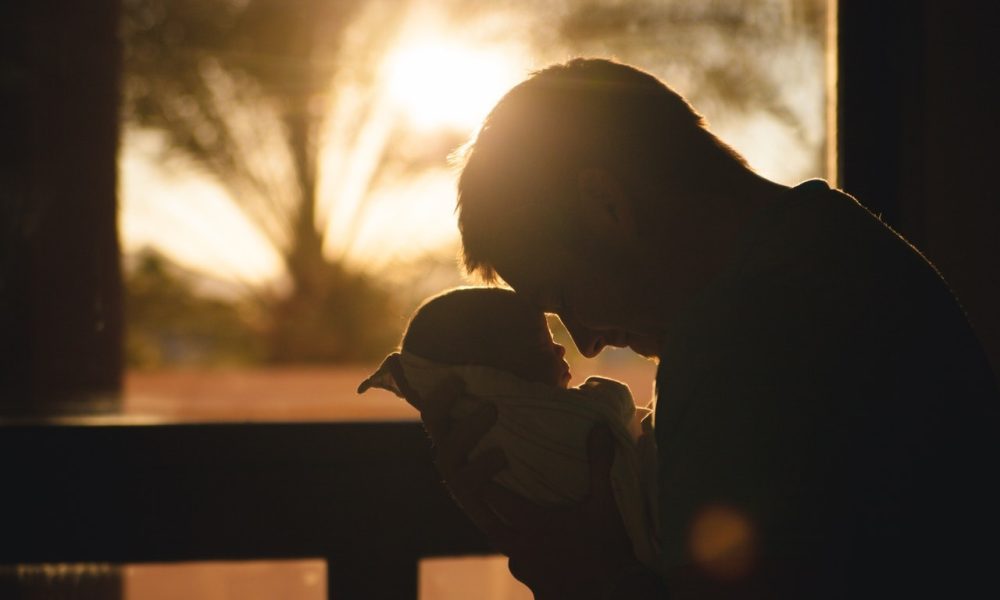

With all of the social distancing measures over the last year, we have been repeatedly told by public health officials that it is our responsibility to stay home and flatten the curve.
You are not responsible for the problem, but you now find yourself responsible for part of the solution.
It can be frustrating, it can be isolating, and it might not seem fair.
Although we may sometimes want to resist the calls to take responsibility, consider the other areas of life where you are not responsible for the problem but still need to be part of the solution.
If you’ve experienced trauma leading to mental health issues, you are not responsible for the problem, but you are responsible for being part of the solution.
The same goes for a heredity illness. You are not responsible for the problem, but you are responsible for being part of the solution.
Falling into a victim mindset only serves to strengthen the problem.
What is responsibility?

Responsibility is the ability to respond.
Not paralyzed by fear, plagued by anxiety, or procrastinating, pretending the problem doesn’t exist.
Responsibility means being prepared, but not panicked. It requires planning, but not perfectionistic plots to control the uncontrollable.
Responsibility consists of accepting uncertainty, knowing you will do what you can control, and letting go of the things you cannot.
Responsibility requires a response proportional to the problem, adapting to obstacles as they arise.
The psychologist Jordan Peterson says the physical posture of responsibility is standing up straight with your shoulders back, in 12 Rules for Life:
To stand up straight with your shoulders back is to accept the terrible responsibility of life, with eyes wide open. It means deciding to voluntarily transform the chaos of potential into the realities of habitable order. It means adopting the burden of self-conscious vulnerability, and accepting the end of the unconscious paradise of childhood, where finitude and mortality are only dimly comprehended. It means willingly undertaking the sacrifices necessary to generate a productive and meaningful reality (it means acting to please God, in the ancient language).
Why is responsibility important?

Responsibility is important because it provides a sense of purpose, in addition to building resilience amidst adversity on an individual and societal level.
Like an addiction, sidestepping responsibility may feel good in the short-term, but leads to exponentially worse pain and suffering in the long term.
A tiger metaphor by Steven Hayes seems fitting here.
Imagine you adopted a tiger cub into your home. It is cute, cuddly, and harmless. You notice it begins to purr loudly, and the only way you can make it stop is to feed it red meat. Over the months and years, you keep doing this, but the tiger is now several hundred pounds, requiring whole sides of beef. Rather than a cute purr, the tiger roars ferociously for its meat. You are terrified, so you keep giving him the meat so he will leave you alone. The more you feed it, the larger it gets, and the more trapped you become.
In this metaphor, feeding the tiger symbolizes sidestepping your responsibilities. There is temporary relief, but a long term cost. Each time you avoid responsibility, you are feeding the tiger, making the problem larger, giving up long term freedom and control.
Why do people choose to become trapped in troublesome tiger relations? Jordan Peterson explains one potential reason in 12 Rules for Life:
Sometimes, when people have a low opinion of their own worth or, perhaps, when they refuse responsibility for their lives they choose a new acquaintance, of precisely the type who proved troublesome in the past. Such people don’t believe that they deserve any better so they don’t go looking for it. Or, perhaps, they don’t want the trouble of better.”
Let’s go deeper into how low self-worth prevents responsibility and look at how to build a sense of purpose through responsibility to one’s self, one’s family, and one’s society.
Responsibility provides a sense of purpose

Avoiding responsibility destroys a sense of purpose. Purpose comes from a sense of contribution and connection to something larger than yourself. But first, it is necessary to take responsibility for yourself. By being the best version of yourself, you can then be the most helpful to others.
Being responsible for yourself

This requires taking care of your basic needs. In the recovery community, it is common to use the acronym, HALT. Are you hungry, angry, lonely, or tired? Regularly check in on your current state and address deficiencies where appropriate.
Another way to maintain self-responsibility is to organize the clutter in your physical environment and the chaos in your day-to-day life. Prioritize your sleep, nutrition, and exercise. If all of this sounds overwhelming, start small. As Jordan Peterson says, “Clean your damn room!” But as he also says, “Cleaning up your room involves cleaning up far more than your room.”
Doing something useful for yourself is the first step in reorienting yourself amidst the mental fog of purposelessness. As the fog begins to thin out, you can start to see beyond yourself. This leads to step two:
Being responsible within your family

Once you’re adequately useful to yourself and can help from a place of genuine giving, you can be useful to others close to you.
I mention genuine giving because many people try to be useful to others without addressing their own needs first. This often results in codependent relationships where you do things for others to fill a lack of self-esteem in yourself. It is an experience of toxic shame where we constantly feel the need to prove ourselves and receive external validation. This may feel like “taking responsibility,” but it is often unhelpful and is just feeding the internal tiger, masking underlying issues with self-worth.
See my article The Need to be Needed for an in-depth description of this interpersonal dynamic.
If you’ve worked through these personal areas and can engage in close interpersonal relationships based on genuine heartfelt giving, the next step is this:
Being responsible within the broader society

Being socially responsible can happen in various ways. Right now, it simply means staying home to prevent community spread of the viral infection.
During regular times, being socially responsible might take place in your work, volunteer roles, or leisure activities.
The key to maximizing your social responsibility is contributing in a way that fits your unique personal strengths. For example, if your strengths are working with people, and you value compassion, developing and applying these strengths allows you to contribute socially and maximally.
A lack of fit between your strengths, values, and interests can hinder your level of usefulness in your work, resulting in a low sense of purpose within the role. Finding alignment between your abilities and your role requires first knowing your strengths and cultivating them.
Not cultivating and applying your unique strengths doesn’t just rob you of a sense of purpose, but it also robs the broader society of your potential contributions.
Conclusion
Although you may not be responsible for personal or social issues, you are still responsible for being part of the solution.
Avoiding responsibility comes with a short-term gain at a long-term cost.
Taking responsibility creates long-term resilience and a sense of purpose.
This sense of purpose can be fostered by taking responsibility for one’s self by engaging in self-care. Responsibility can also be developed on a familial and societal level, offering a sense of purpose proportional to your ability to contribute your unique abilities.









You must be logged in to post a comment Login